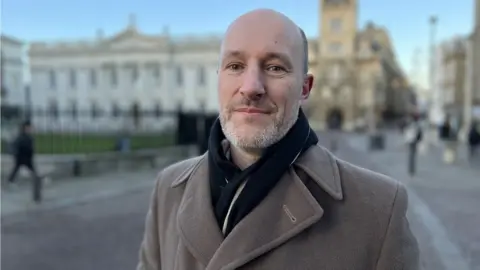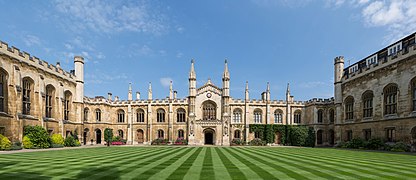In the world of business and innovation, people often think registering a trademark is a seemingly straightforward task, but sometimes it can lead to unexpected and costly battles. Tahl Holtzman, founder of Cambridge NeuroTech, whose journey to register his company’s name, sheds light on the complexities and challenges of intellectual property rights, particularly when it involves iconic place names like Cambridge.
In 2017, Holtzman embarked on what he assumed would be a straightforward process: registering the trade name of his company, Cambridge NeuroTech. However, his optimism quickly faded when, on the brink of the deadline, he faced formal opposition from an unexpected adversary – the Chancellor, Masters, and Scholars of the University of Cambridge.

The University of Cambridge, a well-respected institution with a long history of academic excellence, contends that while it doesn’t claim to “own” Cambridge outright, it does hold trademark registrations for various classes of goods and services. These trademarks, the university argues, are essential for protecting its brand and preventing confusion among consumers. However, for entrepreneurs like Tahl Holtzman and Tony Cooke of Cambridge Clinical Laboratories, challenging the opposition from a prestigious institution like the University of Cambridge feels akin to a David and Goliath scenario. The financial and legal burdens incurred during the trademark battles highlight the uphill struggle faced by small businesses against formidable opponents with deep pockets and extensive resources.
Trademark law, as explained by experts like barrister Beth Collett, is a nuanced domain where the significance of a place name hinges on its “acquired distinctiveness” in relation to specific goods and services. While the University of Cambridge asserts its rights to protect its brand, critics argue that such actions stifle innovation and entrepreneurship within the Cambridge ecosystem. The ramifications of these trademark disputes extend beyond the courtroom, affecting the broader innovation landscape of Cambridge. Start-ups and businesses, deterred by the prospect of legal battles and financial strain, may hesitate to embrace the city’s name as part of their brand identity, potentially stifling creativity and economic growth.
As stakeholders grapple with the complexities of trademark law and intellectual property rights, finding common ground becomes imperative. The University of Cambridge’s commitment to protecting its brand must be balanced with fostering a vibrant ecosystem that nurtures innovation and entrepreneurship. Collaborative dialogue and reasonable solutions can pave the way for a more inclusive and supportive environment where businesses can thrive without undue legal impediments.

The trademark battles involving Cambridge brings to light the intricate interplay between tradition, innovation, and intellectual property rights. While the University of Cambridge seeks to safeguard its esteemed reputation, entrepreneurs like Tahl Holtzman and Tony Cooke embody the spirit of innovation and enterprise. As these narratives unfold, the quest for a harmonious coexistence between tradition and innovation continues, shaping the future of Cambridge’s dynamic entrepreneurial landscape.
You can read more about Tahl Holtzman’s path to registering his trade name here.
If you have a trademark, logo, or slogan, that you would like to protect but don’t know where to start, contact Madan Law PLLC to speak with one of our attorneys about the best way to protect yourself and your brand. To begin a trademark clearance search with Madan Law PLLC you can fill out our Clearance Search and Report Form here or send us a message here. Let Madan Law PLLC help you #MakeYourMark.
